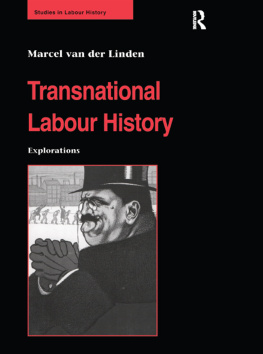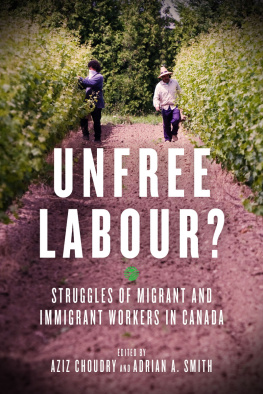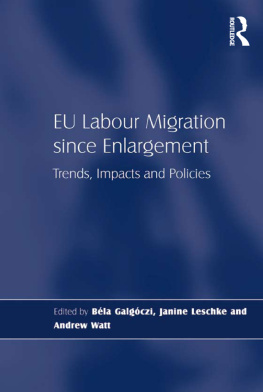
Transnational Labour Migration, Livelihoods and Agrarian Change in Nepal
Through the prism of a Nepali remittance village, this book critically examines poverty and livelihood dynamics remade through transnational labour migration and remittances, and their interrelationships with land, rural labour and agriculture.
The concept of The Remittance Village emphasises rural peoples transnational mobilities as a key feature of contemporary dynamics in many parts of the Global South, which are reconfiguring rural social, economic and ecological textures. Sunam challenges complacent linear narratives that assume new opportunities such as transnational migration, and remittances provide better pathways for the rural poor to come out of poverty, as well as narratives that understate the importance of land and farming for the rural poor. He demonstrates both that new opportunities are inaccessible for many poor people and that accessing these opportunities often engenders increased precarity and vulnerability. In The Remittance Village, he finds that even those accessing new opportunities are successful only when their household member(s) are simultaneously engaged in in-situ (non-)agricultural activities.
This book is a valuable resource for scholars and students from a range of interdisciplinary backgrounds, including human geography, anthropology of development, and sociology. It is also recommended reading for policy makers, international development agencies and I/NGOs working on rural development in the Global South.
Ramesh Sunam is an Assistant Professor at the Waseda Institute for Advanced Study, Waseda University, Tokyo, Japan.
Routledge-WIAS Interdisciplinary Studies
Edited by Hideaki Miyajima and Kazuhisa Takemura,
Waseda University, Japan
Corporate Crime in China
History and Contemporary Debates
Zhenjie Zhou
Why Policy Representation Matters
The Consequences of Ideological Proximity Between Citizens and Their Governments
Willy Jou, Luigi Curini and Vincenzo Memoli
Electoral Survey Methodology
Insight from Japan on Using Computer Assisted Personal Interviews
Edited by Masaru Kohno and Yoshitaka Nishizawa
Corpus Methodologies Explained
An Empirical Approach to Translation Studies
Edited by Meng Ji, Lidun Hareide, Defeng Li and Michael Oakes
Clans and Religion in Ancient Japan
The Mythology of Mt. Miwa
Masanobu Suzuki
Clans and Genealogy in Ancient Japan
Legends of Ancestor Worship
Masanobu Suzuki
Incorporating Patient Knowledge in Japan and the UK
A Study of Eczema and the Steroid Controversy
Miho Ushiyama
Transnational Labour Migration, Livelihoods and Agrarian Change in Nepal
The Remittance Village
Ramesh Sunam
For the full list of books, please visit www.routledge.com/Routledge-WIAS-Interdisciplinary-Studies/book-series/WIAS01
Transnational Labour Migration, Livelihoods and Agrarian Change in Nepal
The Remittance Village
Ramesh Sunam
First published 2020
by Routledge
2 Park Square, Milton Park, Abingdon, Oxon OX14 4RN
and by Routledge
52 Vanderbilt Avenue, New York, NY 10017
Routledge is an imprint of the Taylor & Francis Group, an informa business
2020 Ramesh Sunam
The right of Ramesh Sunam to be identified as author of this work has been asserted by him in accordance with sections 77 and 78 of the Copyright, Designs and Patents Act 1988.
All rights reserved. No part of this book may be reprinted or reproduced or utilised in any form or by any electronic, mechanical, or other means, now known or hereafter invented, including photocopying and recording, or in any information storage or retrieval system, without permission in writing from the publishers.
Trademark notice: Product or corporate names may be trademarks or registered trademarks, and are used only for identification and explanation without intent to infringe.
British Library Cataloguing in Publication Data
A catalogue record for this book is available from the British Library
Library of Congress Cataloging in Publication Data
A catalog record for this book has been requested
ISBN: 978-0-367-47156-9 (hbk)
ISBN: 978-1-003-03382-0 (ebk)
Typeset in Galliard
by Wearset Ltd, Boldon, Tyne and Wear
Contents
Many individuals and organisations have extended their support for my research project. Despite my best intentions, I am unable to list them all. I am forever indebted to those whom I may never fully repay. Much gratitude goes to John McCarthy for his intellectual guidance and persistent inspiration. I am grateful for his mentorship and his efforts in providing me with every opportunity to develop my project. I am indebted to Kuntala Lahiri-Dutt, Jagannath Adhikari, Keith Barney and Colin Filer for their scholarly guidance and encouragement. My appreciation also goes to the excellent group of my colleagues and friends who supported and encouraged me to think in new and different ways. In particular, I would like to thank Undarga Sandagsuren, Monira Ahsan, Jyotsna Tamang, Anupama Mahat, Joyce Das, Ram Prasad, Ghimire, Keshab Goutam, Binod Chapagain, Mohan Adhikari, Mandip Rai, Dipak BK and Maniram Banjade who all have given their generous support along the way. I have also received support from Kumar Darjee, Rahul Karki, Shiva Pariyar, Nayna Jhaveri and Prema Hallikeri, at different stages of this project.
I am indebted to all who provided support and assistance during my doctoral fieldwork in Sunsari district, Nepal, including Abhiyan Nepal, an NGO based in Itahari, Sunsari. I am thankful to Binod Chapagain and Keshab Dahal for strategic and logistic advice, and to Mohan Timsina, Sabitri Shrestha and Sita Magar for their assistance during data collection. Krishna Thapa and his family, who hosted me as their family member throughout my stay in their village, deserve special thanks. I extend my sincere respect and appreciation to people of Panchayan village who provided rich data. In particular, I am highly grateful to landless and poor people who spent days with me despite the fact they had to struggle every day to secure two square meals. I am also thankful to many institutions for providing generous funding for my research, including the ANU Crawford School of Public Policy, the Open Society Foundation and the Japan Society for the Promotion of Science (JSPS).
Last but not least, my extended family members have always provided constant love and support throughout my intellectual journey. Despite everyday odds and struggles, my grandparents and parents created favourable conditions for my studies. Although what I have written in this book may not make much sense to them, they are immensely happy with what I have produced. I dedicate this piece of work to my parents and late grandparents. My deepest gratitude is reserved for my family members, Lata, Movisha and Moral. Without their love and understanding, I could never have done this.






